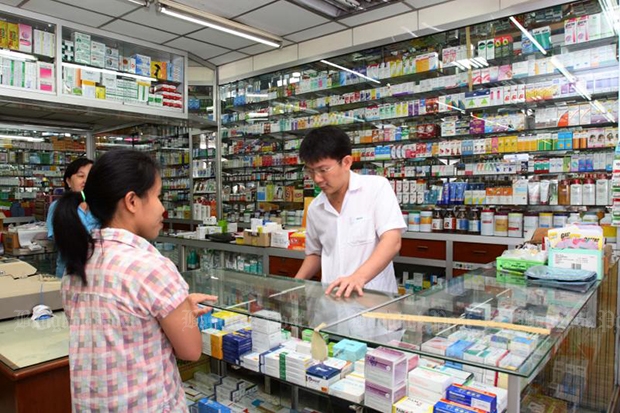
HANOI - As Vietnam opens up to more foreign money, the country’s fast-growing pharmaceutical industry is emerging as one of the most attractive prizes for overseas investors.
Domesco Medical Import-Export JSC, the third-largest listed drugmaker, has shot up 141% this year after getting shareholder approval to scrap the 49% foreign ownership limit on its stock.
DHG Pharmaceutical JSC, the largest, has risen 39%, with Japan’s Taisho Pharmaceuticals Holdings Co. buying a 24.5% stake last month.
Vietnamese healthcare companies have returned 40% in 2016, the best performance among 10 industry groups on the VN Index.
The government allowed Vietnam Dairy Product JSC, the biggest listed company, to remove its foreign investment cap in July, driving the VN Index to an eight-year high amid optimism further approvals would follow. Overseas ownership of many local drugmakers is already at or near the limit, creating pent-up demand from money managers seeking to benefit as the nation’s burgeoning middle class spends more on healthcare.
“If Domesco gets approval to remove the foreign cap, it will be a good catalyst for the market in general and for the stock in particular,” said Tran Hoang Son, the Hanoi-based head of market strategy at MB Securities JSC. “The pharmaceutical industry is already an attractive sector for overseas investors.”
Vietnam’s pharmaceutical market is forecast to increase from US$4.2 billion in 2015 to $7.2 billion by 2020 and then maintain double-digit annual growth through 2025, according to a report by BMI Research. The industry will keep growing at around 10% to 15% a year, said Chris Freund, the founder of Mekong Capital Ltd, a private equity firm.
“Vietnam’s pharmaceutical sector is still very fragmented and the management standards are typically quite poor,” he said from Ho Chi Minh City. “There’s an opportunity for strategic investors to invest in pharma companies, help them to build their management teams, to form international partnerships and apply more best practices.”
Traphaco JSC, the second-biggest local listed pharmaceutical company, has risen 72% this year. Imexpharm Pharmaceutical JSC and Cuu Long Pharmaceutical JSC, which round out the five biggest drug companies on the Ho Chi Minh City gauge, are up 40% and 135%, respectively. The benchmark VN Index has climbed 12% so far in 2016.
Cheap Valuations
Even with their surging share prices, valuations are still relatively low. Domesco has a 12-month price-to-earnings ratio of 7.2, DHG Pharmaceutical is 11.9 and Traphaco is 17.8. That compares with a ratio of 14 for the Stock Exchange of Thailand Personal Products & Pharmaceuticals Index and 37.9 for South Korea’s KOSDAQ Pharmaceutical Index.
“The sector is relatively cheap compared with pharmaceutical stocks in emerging markets,” said Le Hong Lien, head of Institutional Research at Maybank Kim Eng Securities JSC in Ho Chi Minh City.
DHG Pharmaceutical, Imexpharm and Domesco, which is 45.9% owned by Chile’s CFR International SpA, are already at the 49% offshore ownership limit, according to figures from VNDirect Securities JSC. Traphaco is around 45% held by overseas investors.
If Domesco, which still has to get government approval, and other companies manage to remove their foreign investment caps they’ll have to withdraw from local distribution and retail to comply with Vietnamese law. Retail made up 35.6% of Domesco’s revenue in 2015, according to its annual report.
There are risks for foreigners investing in the industry, said Michel Tosto, head of institutional sales at Viet Capital Securities JSC in Ho Chi Minh City. “The problem is that listed companies in this sector tend to be rather small and illiquid,” he said. “Finding good companies in the sector is tricky.”
The listed Vietnamese pharmaceutical firms seem to be fairly valued at the moment, but strategic investors would probably be willing to pay higher valuations for large stakes, said Mekong Capital’s Freund.
“The level of interest by strategic investors is high, especially from countries in Asia,” he said. “I do expect to see more transactions over the next 12 months.”
